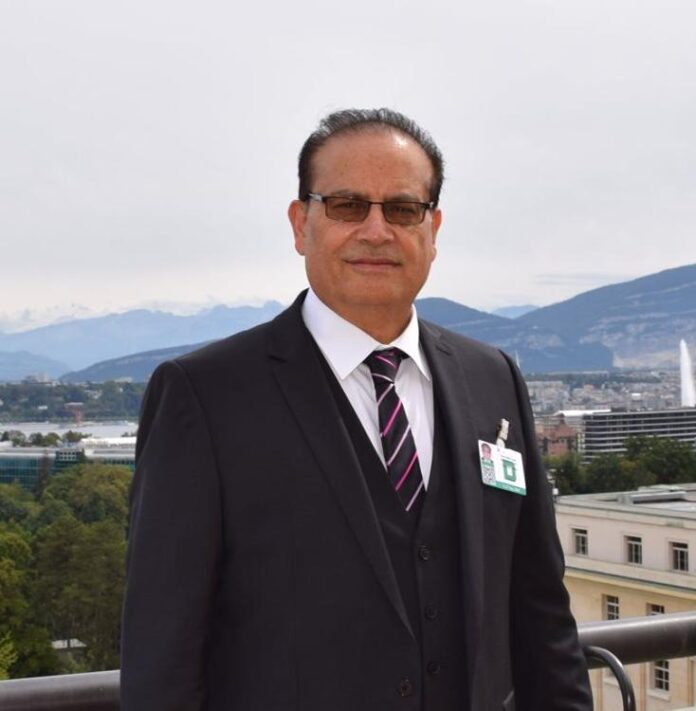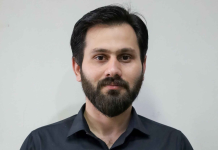By Qamar Bashir
The war, triggered by unprovoked Indian aggression on May 7, concluded decisively in Pakistan’s favor by May 10. In just four days, Pakistan—through unmatched unity, strategic brilliance, and unwavering faith—shattered the illusion of regional hegemony and emerged triumphant on military, technological, and moral fronts. Now, on May 16, the entire Pakistani nation—joined in spirit by the global Muslim community and peace-loving nations worldwide—commemorates this triumph with prayers, humility, and a renewed resolve to defend peace, dignity, and sovereignty against all aggression.
This was not merely a military victory—it was a moral, spiritual, and technological triumph. It marked the vindication of decades of resilience, the reward for unshakeable unity, and the blessing of divine support that carried the nation through a storm not of its choosing. It was, we believe, not only the help of Allah Almighty but also the spiritual approval, blessings, and support of our beloved Prophet Muhammad (Peace Be Upon Him) that guided and protected the people of Pakistan.
Pakistan did not seek war. It did not provoke. Yet aggression was imposed by a neighbor long harboring hegemonic ambitions and delusions of grandeur. Armed with a bloated ego and far greater military, economic, and human resources, India assumed it could subjugate a nation it mistakenly deemed weak and divided.
But this time, the script did not follow their expectations.
When war broke out on May 7, 2025, it was Pakistan—the so-called underdog—that stood with clarity and purpose. And when the war ended in humiliation for the aggressor, it was Pakistan that emerged with honor, unity, and humility intact.
As missiles flew and fighter jets roared through the skies, something even more powerful unfolded within Pakistan: a nationwide unification of spirit. All political, religious, ethnic, and regional divides vanished. Pakistan stood as one—unshakable in purpose and united in resolve.
From political leaders across the divide to military commanders in war rooms, from soldiers in trenches to engineers in command centers, from mothers in prayer to diplomats on global media platforms, the nation moved like a single organism. Social media activists, journalists, analysts, veterans, youth, women, and men all became an army of truth-tellers. They countered false narratives with facts, logic, and passion, dismantling the enemy’s propaganda in real time. It wasn’t just a military front—it was a national front.
The war revealed the brilliance of Pakistan’s strategic capabilities. Despite limited resources and less expensive equipment, our armed forces outperformed expectations and embarrassed a technologically superior foe.
The Pakistan Air Force, with fewer and less costly jets but superior skill, executed aerial maneuvers that left international analysts awestruck. Our pilots evaded advanced radar, outmaneuvered India’s much-touted defense systems, and neutralized the highly acclaimed Rafales, Su-30s, MiG-29s, and even the S-400 air defense system.
Meanwhile, Pakistan’s cyber warriors intercepted and disrupted India’s missile control systems. As a result, many Indian missiles self-destructed mid-air, misfired on their own territory, or landed harmlessly in Pakistan’s empty deserts. It wasn’t magic—it was the result of meticulous preparation, relentless training, and indigenous innovation.
Pakistan’s three military branches, missile engineers, cyber analysts, and defense strategists operated in perfect coordination. Their synergy ensured that our missiles hit their targets with devastating precision, while Indian weapons turned into little more than expensive fireworks. This conflict proved that true technological edge lies not in budget, but in professionalism, expertise, training, and mastery of modern warfare.
Yet, every war is fought not only at borders but in the hearts of the people. And in this war, the hearts of the Pakistani people were stronger than steel. I recall asking my sister—whose son, Muhammad Ali, was preparing to join the Air Force as an engineer—if she feared losing him in battle. Her response still echoes in my mind: “Not only him. If I had more sons, I would send each one of them to defend our motherland.”
That sentiment resonated across the nation. Parents wept but did not hesitate. Women contributed through prayers, volunteering, and keeping national morale high. Children displayed fearlessness, and elders raised their hands in fervent supplication. The spirit of sacrifice extended far beyond the battlefield—it permeated every home.
Pakistan did not stand alone. The entire Muslim world extended moral and diplomatic support. Though Pakistan did not request material assistance, the solidarity from brotherly nations became a powerful moral shield. It was a collective declaration: Pakistan is not alone.
When a journalist asked China’s Foreign Ministry spokesperson whether Beijing would support Pakistan, the answer was unequivocal: “We stand by Pakistan like an iron wall. We will take all necessary measures to protect its sovereignty, dignity, and territorial integrity.” This firm affirmation sent a clear message to the world: Pakistan is not isolated. It is respected, and its cause is seen as just.
As Indian planes fell and their missiles misfired, Pakistan’s diplomats took center stage across global media. They calmly dismantled India’s narrative, laid out the facts, and reminded the world that Pakistan was not the aggressor—it was the victim of unprovoked hostility. The moral high ground remained firmly with Pakistan.
International media took notice. Major outlets condemned India’s recklessness. Analysts questioned its motives and highlighted the emptiness of its justifications. The myth of Indian military invincibility crumbled—not merely through brute force, but through a united, truth-speaking nation backed by ethics, professionalism, and courage.
And so, on May 16, 2025, the nation celebrates—not with arrogance, but with humility. We do not rejoice in destruction, but in the defense of our honor. We do not glorify war—we honor the peace that was preserved through sacrifice. We do not boast—we give thanks.
We thank Allah Almighty, whose unseen help turned fear into courage, division into strength, and defense into victory. And we thank our beloved Prophet Muhammad (Peace Be Upon Him), whose eternal guidance, blessings, and spiritual support inspire courage, discipline, and justice in every Muslim heart. We thank our mothers, fathers, and children. We thank our scientists and engineers. We thank our pilots, soldiers, cyber warriors, and strategists. We thank our friends and allies—and above all, we thank the people of Pakistan.
Across the country, prayers will be offered. Seminars will be held. Lessons from this victory will be taught in schools and remembered in homes—not as a tale of conquest, but as a story of resolve, righteousness, and resilience.
We reaffirm that Pakistan is not an aggressor. We have never invaded another nation, nor will we ever provoke war. We believe in peaceful coexistence, regional stability, and mutual respect. But when our sovereignty, dignity, or survival is threatened, the world now knows what we are capable of.
We do not fight for conquest—we fight for our right to exist. And when we fight with unity, faith and discipline, even the mightiest aggressor will stumble.
So today, we stand proud—but humble. Victorious—but peaceful. Thankful—but prepared.
May Allah continue to guide and protect our nation, and may the blessings and example of Prophet Muhammad (Peace Be Upon Him) continue to illuminate our path.
By Qamar Bashir
Press Secretary to the President (Rtd)
Former Press Minister at the Embassy of Pakistan to France
Former MD, SRBC
Macomb, Michigan, USA

















